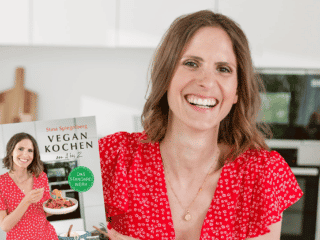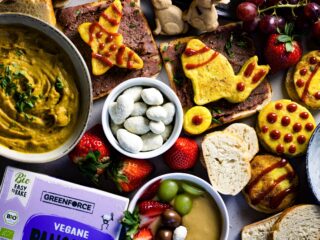Vitamin B12 – The myth about vegan malnutrition
- Posted on
- 7 minute read
- Yannick
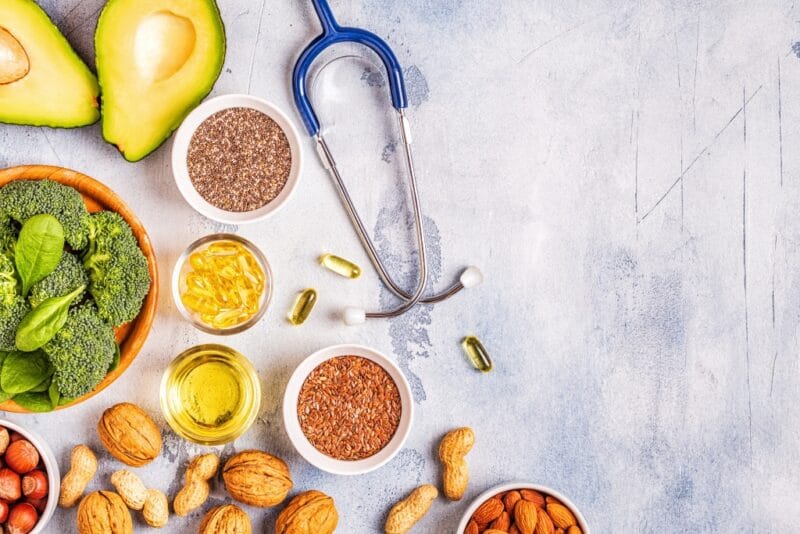
“And what about vitamin B12 in the vegan diet?” – after the question about protein supply, this is always the first thing that is asked when it comes to vegan nutrition. While vitamin D and E have been the talk of the town for years, vitamin B12 is usually only reported in connection with vegan nutrition. Due to the increase in vegetarian and vegan people, this vitamin has gained relevance in recent years.
With this article we would like to change that and clear up the most common myths around the topic of vitamin B12 deficiency in vegan diets.

What is vitamin B12?
Vitamin B12 is a so-called essential vitamin. This means that we must take it in through food, since our body cannot produce it itself. Together with 8 other vitamins, vitamin B12 is part of the so-called vitamin B complex. These 8 vitamins work closely together in our body and are significantly involved as coenzymes in numerous metabolic processes in our organism. If a vitamin is missing, they become imbalanced and serious diseases can result.
The functions of vitamin B12
A large part of our metabolic processes in the body can only take place with the help of vitamin B12. Here we would like to introduce you to the 5 central tasks of vitamin B12.
Synthesis of DNA
Vitamin B12 is centrally involved in the synthesis of our DNA and thus contributes significantly to blood formation and cell division in our body.
Power generation
Energy production from food cannot take place without vitamin B12.
Detoxification
The vitamin binds various toxic substances in our body so that they can be excreted. Vitamin B12 is also involved in the neutralization of oxidative stress.
Protection of neuronal connections
Vitamin B 12 is also involved in the production of myelin sheaths. Myelin sheaths wrap around our nerve cells as protective sheaths and thus ensure error-free signal transmission.
Synthesis of neurotransmitters and hormones
In addition, vitamin B12 is involved in the synthesis of important messenger substances that influence our cognitive performance, our perception and our mood, especially in the brain.
This is just an overview of the main functions of vitamin B12. Due to the fact that every cell in our body undergoes cell division, every single one of them is also depend on an adequate supply of vitamin B12. If it is not sufficiently available to us, this can result in an equally wide range of health problems.
How much vitamin B 12 do we need daily?
The German Nutrition Society (DGE) recommends a daily intake of 4 µg per day from the age of 15 . The requirement is slightly increased in pregnant and lactating women.
Where does vitamin B12 come from?
The vitamin is formed by microorganisms. They can be found in the soil, but also in some algae. It can also occur in the human and animal body. Most of the body’s vitamin B12 production takes place in the large intestine – but the vitamin is absorbed one step earlier in the small intestine. Subsequently, we simply excrete the laboriously produced vitamin B12 again with the next bowel movement. The good news is that we are not alone in this; almost all mammals feel this way. The only exception is ruminants (e.g. cows): With an adequate supply of cobalt, they can produce vitamin B12 themselves in a special stomach.

Is vitamin B12 found in animal products?
Yes, vitamin B12 is present in relevant amounts in animal products. For most non-vegans, this remains a major argument to justify eating animal foods. The fact is, however, that the vitamin B12 in animal products in most cases comes from fed vitamin supplements.
However, since animals in factory farming do not eat grass and thus also traces of microorganisms and soil on pasture – but rather a mix of various types of grain and preparations – the animals’ feed must therefore be enriched with cobalt. In order for a cow in breeding stock to produce enough vitamin B12 to supply some humans – who in turn later eat its meat – the amount of cobalt added to the feed would have to be immensely high. In most cases, it is quicker, less complicated and cheaper to enrich animal feed directly with vitamin B12 instead of cobalt. Since pigs and chickens, just like us, cannot produce vitamin B12 in relevant quantities, the nutrient is also fed to these animals. Thus, in most cases, vitamin B12 from animal products is absorbed in the same way from artificial vitamin preparations. In this case, the animal is used as an intermediate supplier instead of supplementing it directly. When meat is eaten, one takes these supplements with it. One could save the way, in which one supplements it directly.
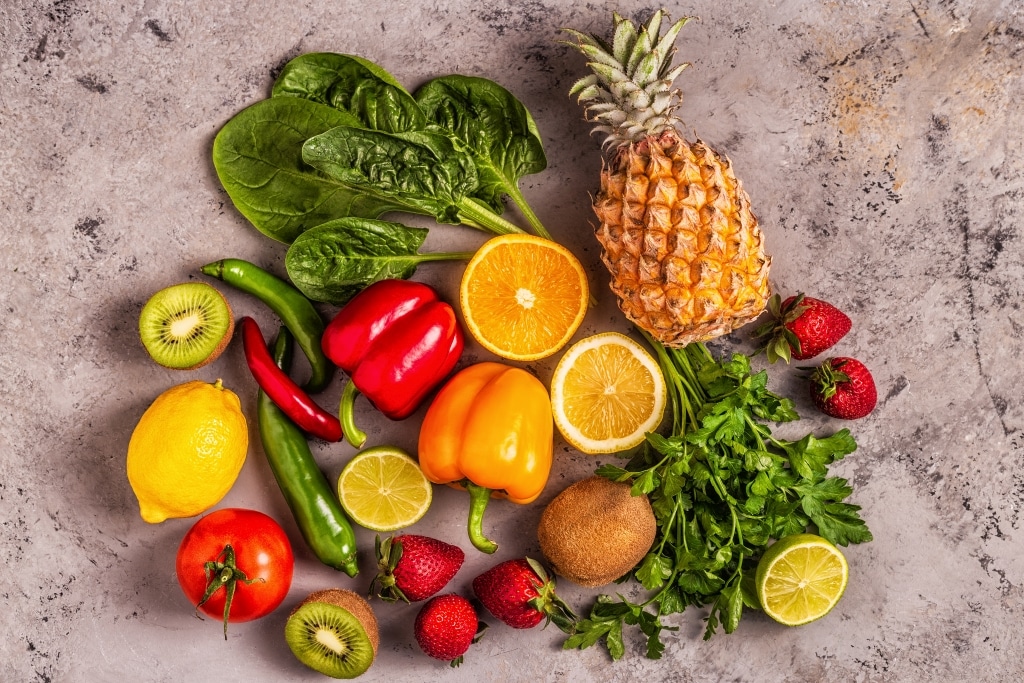
Is vitamin B12 contained in vegetable products?
Vegetables and other plant foods do not contain adequate amounts of vitamin B 12. Before the age of industrial agriculture, we could naturally absorb relevant amounts of vitamin B12 by eating vegetables and the soil particles attached to them. Due to increasing soil degradation caused by monocultures, the use of inorganic fertilizers, and pollution from industrial waste, vitamin B12 production in the soil is also steadily declining. At the latest due to the high hygiene regulations, not much of the vitamin B12 contained in soil residues reaches our bodies today.
Do vegans have a vitamin B12 deficiency?
No general statement can be made about this. However, it is true that a large proportion of all people in Germany suffer from a vitamin B12 deficiency. No matter if vegan or not.
Current studies suggest that in industrialized nations about 39% of the population suffers from a vitamin B 12 deficiency (vitamin deficiency affects many people). However, since many scientists consider the current recommended amounts to be far too low, especially with regard to the effects of vitamin B12 in our brain, these figures may be much higher.
Reasons for vitamin B12 deficiency
The most common reason for a vitamin B12 deficiency is not an undersupply, but an absorption disorder in the gastrointestinal cycle. The absorption of vitamin B12 by the intestinal flora is strongly dependent on intestinal and gastric health, which is slightly to severely impaired in many people in industrialized nations. The vitamin B12 content of the food consumed alone does not usually indicate whether the body is supplied with sufficient vitamin B12.
What life circumstances can lead to an increased need?
- Stress
- High age
- Alcohol and cigarette consumption
- Uptake and utilization disorders
- Pregnancy and lactation
- Illness and infections
What medications can make uptake difficult?
- Antibiotics
- Birth control pill
- Blood pressure lowering medication
- Drugs against cardiac arrhythmias
- Cholesterol-lowering drugs
Effect of vitamin B12 deficiency
If vitamin B12 deficiency is not treated, various serious diseases can occur. Particularly problematic is the fact that an undersupply is often only detected after several years. Of no other vitamin do we accumulate such large stores in our bodies.
There are about 2000- 4000µg of stored vitamin B12 in our liver. Even if we no longer absorb enough of it, we can still draw on these stores for several years and often only notice the serious effects of years of undersupply very late.
Possible symptoms of vitamin B12 deficiency
- Chronic fatigue, exhaustion and difficulty concentrating due to disturbed energy metabolism
- Performance and immune deficiency due to anemia
- Numbness and tingling in limbs, nerve pain, paralysis, and coordination and memory problems due to nerve damage
- Mental-psychological disorders, listlessness, nervousness, depression and psychosis due to disorders of neurotransmitter and hormone metabolism.
- Constipation and diarrhea due to digestive disorders
- Inflammation of the mouth, stomach or intestines
How to avoid vitamin B12 deficiency?
To avoid a vitamin B12 deficiency, you should have your vitamin level checked regularly by a doctor. Especially vegetarians, vegans as well as pregnant and breastfeeding women should pay more attention to a sufficient supply.
If a deficiency is detected then the supplementation of vitamin B12 as tablets, capsules or drops is recommended.
Daily or weekly intake?
For those who only want to cover their daily requirement, a daily dose of 150-250 µg is reasonable. This value is far above the recommendations given by the DGE, as our body can only absorb a minimum amount of around 2 -3 µg per administered dose, even with a healthy gastrointestinal tract. For this reason, a daily dose is preferable to a very large dose once a week.
Dosage forms of vitamin B12
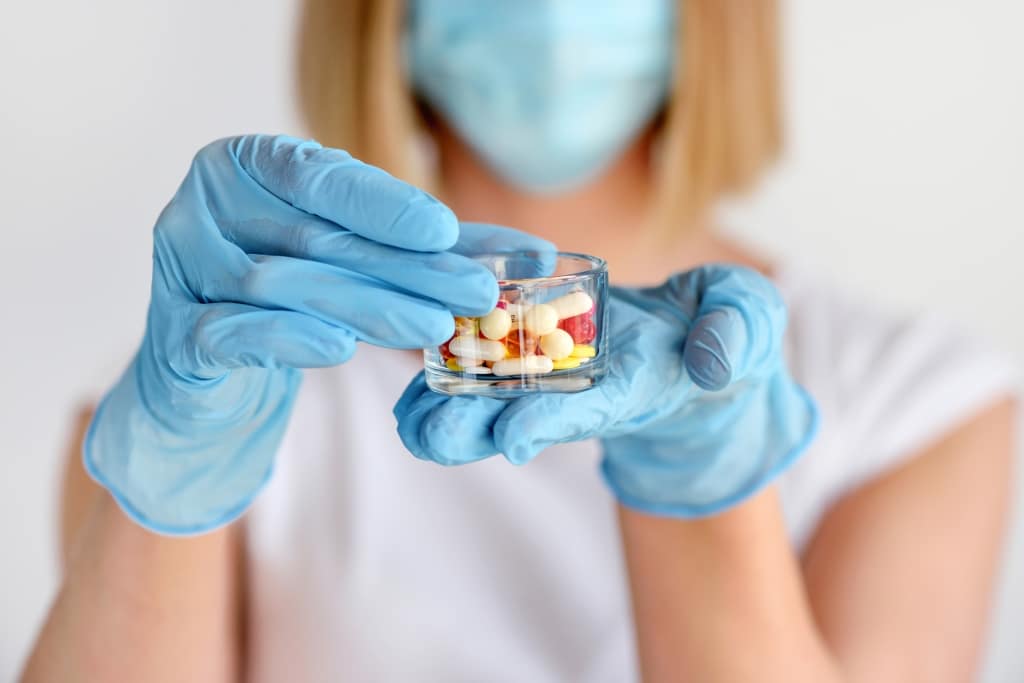
Vitamin B12 tablets
Tablets are probably the best known form of vitamin B12 supplements. However, they have the major disadvantage that a large number of additives are often necessary to ensure the desired shape, color and taste. Some of these potentially contained additives are considered to be of concern by the consumer center.
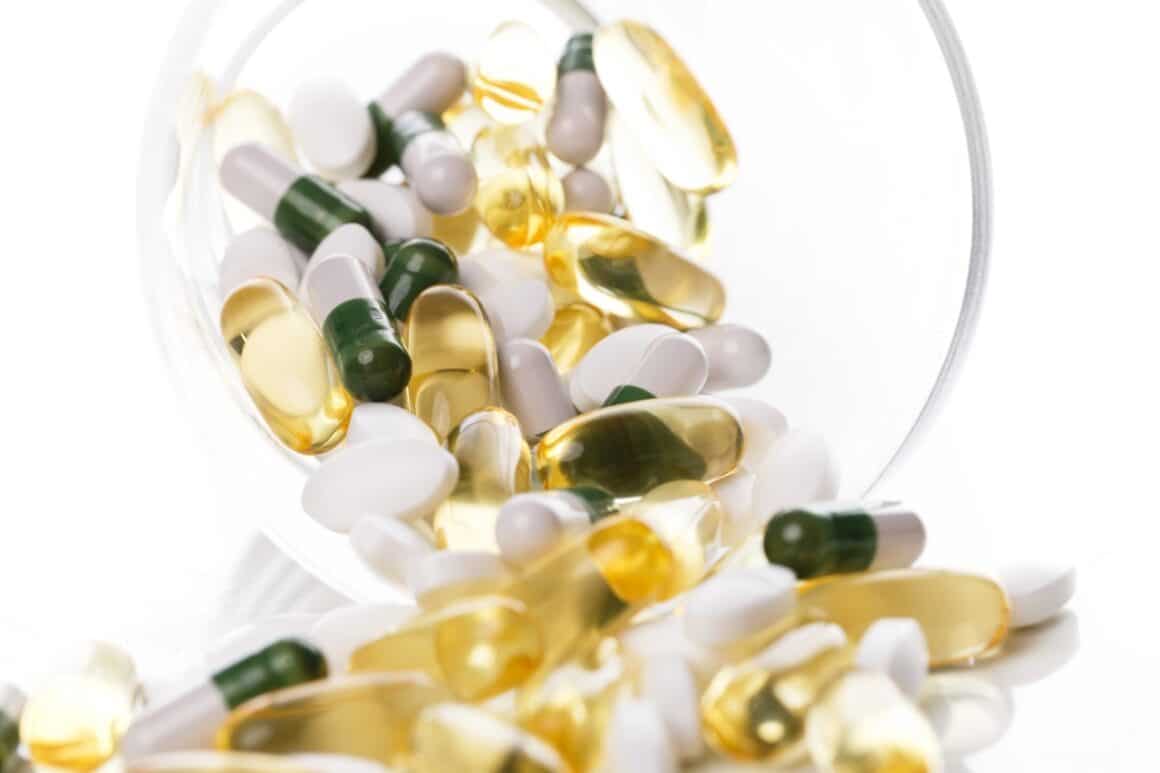
Vitamin B12 capsules
Vitamin B12 capsules are much easier to make without additives. They are among the purest and highest quality vitamin B12 supplements. However, vegans and vegetarians should take a close look at the package, as gelatin or lactose may be contained(The 5 most important vegan logos at a glance).
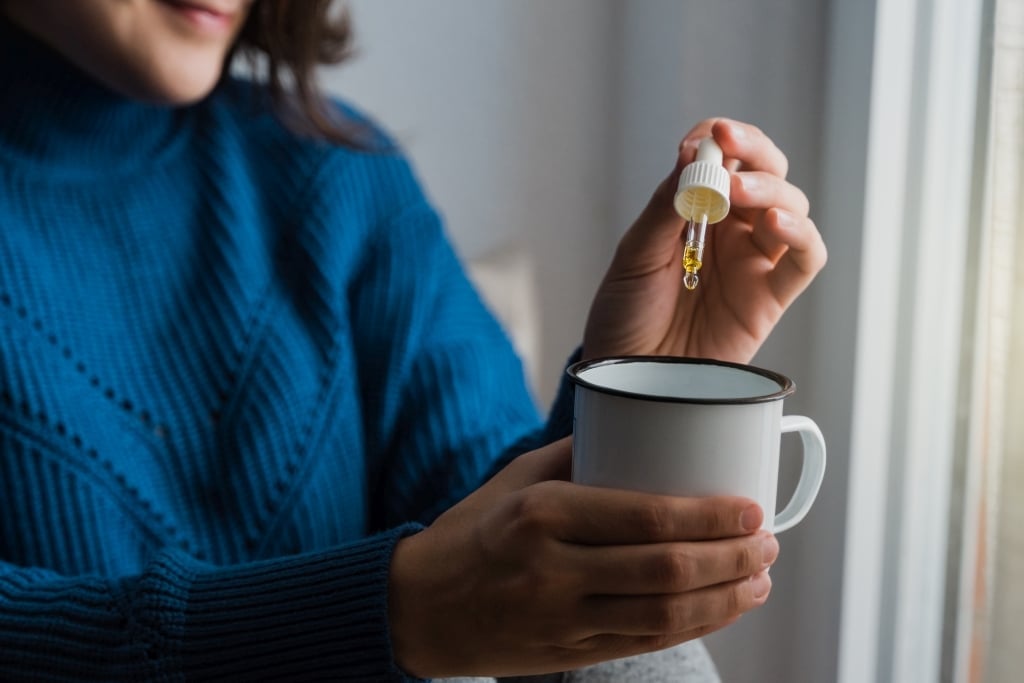
Vitamin B12 drops
Unlike vitamin B12 from food, tablets and capsules, the vitamin in drops and sprays is not absorbed through the intestinal mucosa, but through the oral mucosa. This form of vitamin B12 preparation is also relatively free of additives in most cases and ensures particularly easy application.
What should I look for when buying vitamin B12?
There are different forms of vitamin B12, which can be utilized differently by our body. A mixture of the most natural vitamin B12 types hydroxocobalamin, adenosylcobalamin and methlycobalamin should be the best choice. If you are unsure, consult your doctor.
On our pages you will find affiliate links. If you buy your favorite products through them, we receive a commission, which automatically supports us.
By buying the sustainable reusable cups from us, you support the Papillon Sanctuary or Sea Shepherd.
Alternatively, you can follow us here on Instagram or here on Linkedin, listen to our podcast, subscribe and rate directly here:
Danke. 💚🙏🏽

Bianca Busch
Dieser Artikel ist ein Gastbeitrag von Bianca Busch. Sie ist Ernährungsberaterin, Journalistin und Gründerin des Online-Magazins Veganasté.
Nächster Artikel
Yes, You Can Build Muscle on a Vegan Diet
- Posted on
- Trinity Sparke
What is beta-alanine? All about effect & dosage
- Posted on
- Christin Uthoff
Rice protein – facts about the underestimated vegan protein source
- Posted on
- Christin Uthoff
Vegan sports nutrition – How a good protein supply succeeds
- Posted on
- Christin Uthoff
Is maltodextrin vegan? All about effect & origin
- Posted on
- Christin Uthoff
From burnout to successful food blogger – Stina Spiegelberg on plant-based culinary arts
- Posted on
- Yannick
Easter vegan: everything for an animal-friendly Easter brunch
- Posted on
- Anna Sebestova
Can I eat this? – Animal ingredients are hidden behind these ingredients
- Posted on
- Julia Kein







